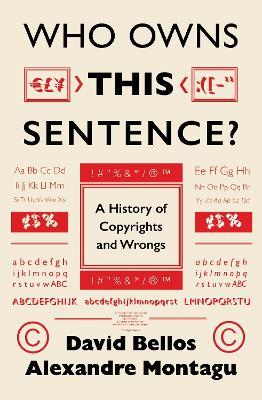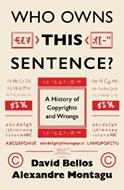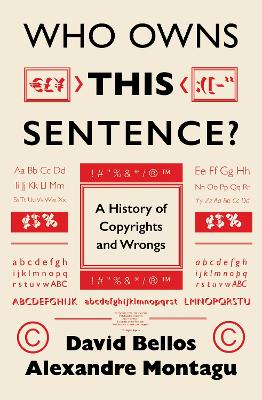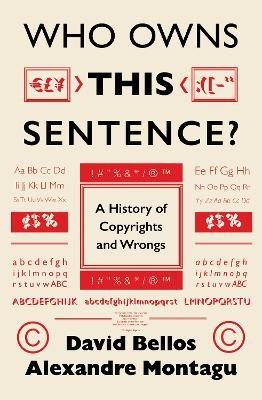Who Owns This Sentence?: A History of Copyrights and Wrongs
'Fascinating' Telegraph 'Thorough and engaging' Washington Post 'Lively, opinionated, and ultra-timely' New Yorker '[A] robust and readable polemic history' Financial Times 'A fascinating new look at the patchwork chaos called copyright ... Not just authors, but artists in many media, scientists, mathematicians and every one of us with our own unique individual faces ... should read this book' Spectator This is the story of a relatively simple idea - that authors have rights in the works they create - which through many strange and startling twists and turns has come to frame and to constrain a wide range of things we do, for the benefit not of the many, but of the few. Copyright is everywhere. Your smartphone incorporates thousands of items of intellectual property. Someone owns the reproduction rights to photographs of your dining table. At this very moment, battles are raging over copyright in the output of artificial intelligence programs. Not only books but wallpaper, computer programs and cuddly toys are now deemed to be intellectual properties - making copyright a labyrinthine construction of laws covering almost all products of human creativity. Copyright has its roots in eighteenth-century London, where it was first established to limit printers' control of books. Principled arguments against copyright arose from the start and nearly abolished it in the nineteenth century. But a handful of little-noticed changes in the late twentieth century concentrated ownership of immaterial goods into very few hands. Who Owns This Sentence? is an often-humorous and always-enlightening cultural, legal, and global history of the idea that intangible things can be owned, and makes a persuasive case for seeing copyright as an engine of inequality in the twenty-first century.
-
Autore:
-
Editore:
-
Anno:2024
-
Rilegatura:Hardback
-
Pagine:384 p.
Le schede prodotto sono aggiornate in conformità al Regolamento UE 988/2023. Laddove ci fossero taluni dati non disponibili per ragioni indipendenti da Feltrinelli, vi informiamo che stiamo compiendo ogni ragionevole sforzo per inserirli. Vi invitiamo a controllare periodicamente il sito www.lafeltrinelli.it per eventuali novità e aggiornamenti.
Per le vendite di prodotti da terze parti, ciascun venditore si assume la piena e diretta responsabilità per la commercializzazione del prodotto e per la sua conformità al Regolamento UE 988/2023, nonché alle normative nazionali ed europee vigenti.
Per informazioni sulla sicurezza dei prodotti, contattare productsafety@feltrinelli.it



